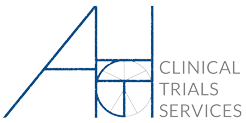Episode 2: DGPharMed Annual Meeting - Highlights
The annual meeting of the DGPharMED took place in Mainz on 18 and 19 April.
Prof T. Sudhop from the BfArM outlined the current and planned developments in the field of clinical research. He reported that over 4000 applications have been submitted via the Clinical Trials Information System (CTIS) to date. Of these, more than 2000 clinical trials have been authorised. About 20% of the applications were unsuccessful for avoidable reasons. Spain, France and Germany are at the top of the list of applicants, with Germany in second place with almost 250 applications as a Reporting Member State (RMS) for multinational studies. However, Germany has a shortage of purely national studies. The average processing time is around 100-110 days for multinational studies and has been reduced to around 80 days for purely national studies, with the aim of reducing this to 26 days. The challenges facing clinical research in Germany are manifold. Contract negotiations are too lengthy. The regulatory requirements in Germany are too complex. The duration of procedures is too long and certain decentralised elements, such as the shipment of investigational medicinal products to patients, have so far been made more difficult or even not possibled. There are plans to facilitate early-phase studies with integrated phase Ia (IIa) protocols. The planned Medical Research Act is to include special regulations for investigational medicinal products, including a special distribution channel and standardised labelling in English. The formation of a specialised ethics committee is also planned. In order to shorten contract negotiations, model contract clauses have been drawn up that anyone can use. The responsibility of the ethics committees for combined clinical trials (medicinal products + in-vitro diagnostics) is regulated by the German Medicinal Products Act.
Dr I. Romero Matuschek, ICON and Dr U. Vollmer, Bayer AG described their experiences with the EU regulation and the CTIS. The sponsor and CRO perspectives were presented. On the sponsor side, they talked about the metrics and timelines and gave an overview of the new transparency rules. Dr Vollmer also shared lessons learned on event reporting, IMPD-Q submissions, the EMA Risk Management Plan and common CTIS errors. On the sponsor side, metrics and timelines were discussed and an overview of the new transparency rules was given. Dr Vollmer also shared lessons learned on event reporting, IMPD-Q submissions, the EMA Risk Management Plan and common CTIS-related errors.
From a CRO perspective, Dr Romero Matuschek presented the CTIS user roles for joint responsibilities of the sponsor and the CRO. She also spoke about the transition of clinical trials that have started under the EU directive. In particular, the strategies for submission and metrics were discussed. Dr Romero Matuschek also gave helpful tips on where information on the EU regulation and the CTIS can be found. Based on experience, the recommendation was made that documents should only be uploaded to the CTIS once they have been finalised. While submissions are in the evaluation phase, no further drafts should be uploaded. Furthermore, it is not recommended to make substantial changes for multi-trials because the versions always refer to specific document names. While repairs are being carried out, no work should be done in CTIS because it is not possible to restore the system after a failure.
Dr R. Pfefferle, Caidya and Dr A. Beust, GCP-Service International Ltd. & Co. KGA discussed the pros and cons of the ICHE6(R3) guideline and asked whether it represents a step forward. Dr Beust represented the contra side and began by outlining the expectations of the current version, which is/was characterised by the increased switch from paper to electronic documentation and the associated requirements. Added to this were the effects of the pandemic and a constantly increasing number of data sources. Overall, however, efficiency in clinical trials has deteriorated. The expectation for the new guideline is therefore an increase in efficiency, more clarity and a focus on current topics. Dr Beust concluded that ICH GCP E6 is more than a guideline because there is a requirement for compliance. This means that the requirements must be clearly defined, otherwise sponsors and investigators will be unsettled and efficiency will be reduced.
Dr Pfefferle represented the pro side with a view to quality risk management (QRM). She sees a direct link between the guideline and ICH E8(R1) and thus risk-based quality management with the following prerequisites: adapted to the respective requirements, quality right from the planning stage and risk-adapted. All of this should lead to better quality in clinical trials. Ultimately, the new ICH GCP Guideline offers a high degree of flexibility, which is required due to different study designs, the use of new technologies, the increasing amount of data collected and the involvement of multiple service providers. In addition, the guideline is better structured than the previous version.
On the second day, Prof T. Schinköthe, CANKADO GmbH, gave a very interesting presentation on the usage of AI in pharmaceutical medicine. Firstly, three main data requirements for the usage of AI in pharmaceutical medicine were presented: Quality, quantity and diversity. There are two main ways of generating artificial intelligence (AI): supervised learning, in which an already known goal is to be achieved, and unsupervised learning. By using synthetic data, AI can generate fictitious patients by incorporating real data. One advantage of AI is its adaptability and ability to learn from failure. However, there are also various challenges in the application of AI, including the need to further develop advanced statistical concepts and the difficulty of understanding the AI decision-making process, as it is a "black box" for the user. It is often not clear how the AI has learnt and the training data is not part of the AI itself. Finally, Prof Schinköthe referred to new tools such as "Scholar GPT" and "PDF Research Assistant", which each offer different functions for processing scientific texts.
The second part of the morning was characterised by the importance of patient centricity in daily practice. First, K. Arndt, German Sarcoma Foundation, explained the patient's perspective and pointed out that patient centricity thrives on regular updates and new ideas. N. Bohrmann and I. Tongbhoyai, both from emovis by FutureMeds, then listed the advantages of decentralised studies. They first defined the term decentralised studies and then referred to the importance of synergies between stakeholders. It was emphasised that mobile healthcare services promote patient-centricity. Decentralised studies are successful if the reach for patients is extended and if data integrity and PI oversight are adhered to. To conclude this series of topics, D. Schemmer, Buveba e.V., gave an overview of patient-centricity in daily practice.
The afternoon began with the presentation of model contract clauses in clinical trials by Dr P. Wissing, MFT Medizinischer Fakultätentag. The reason for the creation of model contract clauses is the realisation that there is a recognisable need for improvement in the drafting of contracts for clinical trials due to the complexity of the contracts and the time-intensive resources involved. On average, contract negotiations currently take around 150 days. Model contract clauses were already developed in 2019. For example, one of these model clauses relates to intellectual property (IP) rights, whereby the client is entitled to all results. In conclusion, the importance of standard contractual clauses is emphasised as an important building block for accelerating the start of studies. Further information on the standard contractual clauses is available on the website https://mustervertragsklauseln.de.
To conclude the presentations, Prof. G. Schmidt, Arbeitskreis Medizinischer Ethikkommissionen e.V., spoke about the challenges facing ethics committees in Germany. Firstly, Prof Schmidt presented the draft of the Medical Research Act (MFG), which stipulates that the Regulatory Authority (RA) act as gatekeeper. This means that applications for clinical trials are forwarded to the Federal Institute for Drugs and Medical Devices (BfArM), which then forwards them to ethics committees or specialised ethics committees (S-ECs). However, the S-EC is not independent, leads to parallel bureaucracy, causes higher costs and will have difficulties with demarcation. The Working Group of Medical Ethics Committees is therefore submitting a proposal for future regulation. This provides for a small number of ethics committees with specialisation to be identified and organised by the Working Group of Medical Ethics Committees. In this way, the ethics committees would remain independent and this variant is more cost-effective than the alternative proposal. In addition, the Working Group of Medical Ethics Committees plans to provide an electronic creation aid for study protocols and informed consent forms (ICF). Furthermore, generic contract templates are to be introduced to simplify contract negotiations. A data protection statement is only required if there is a recognisable risk and this is triggered by the ethics committee.
Overall, the annual conference was a successful event with very interesting topics.


